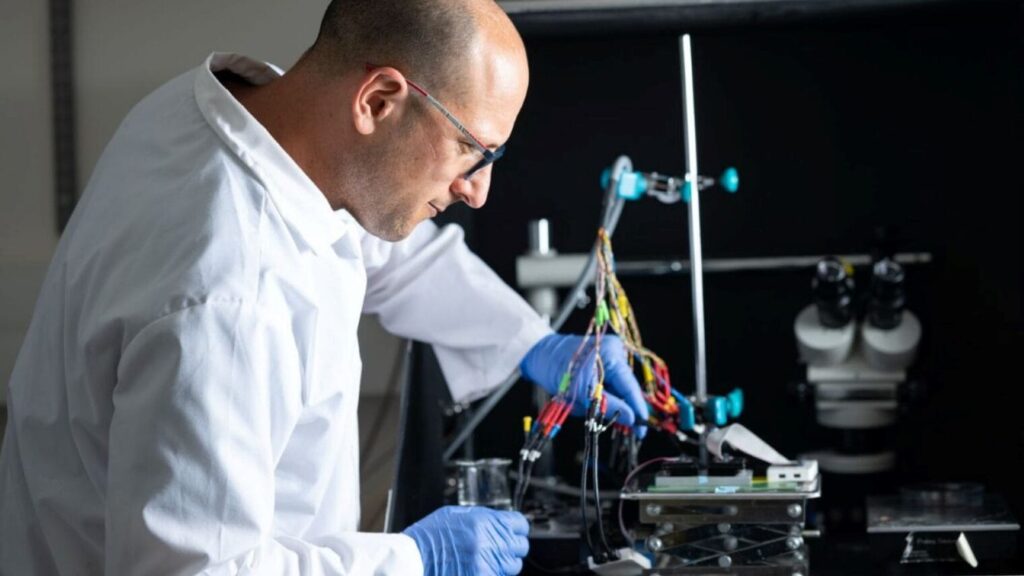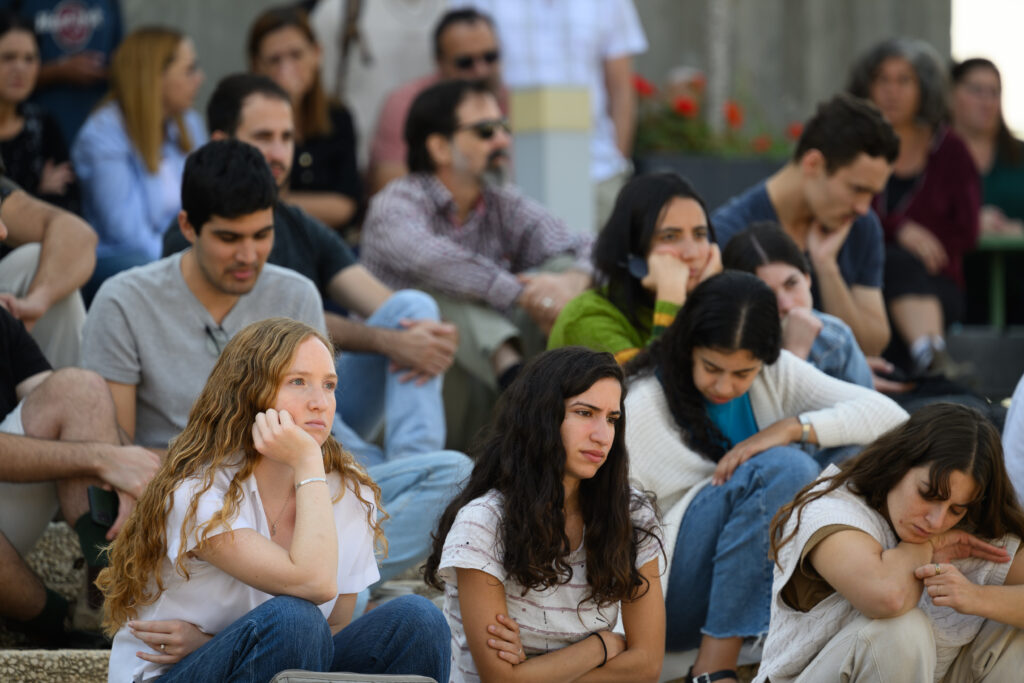
BGU Finds New Ways to Evaluate Sleep Disorders
BGU Finds New Ways to Evaluate Sleep Disorders
March 16, 2015
Medical Research, Press Releases
BGU researchers have developed a groundbreaking approach to determine sleep quality using their new breath sound analysis (BSA). This is less expensive and invasive than current polysomnography (PSG) technology, according to a new study published on PLOS ONE.

Prof. Yaniv Zigel
“One of the main goals of sleep medicine today is to improve early diagnosis and treatment of the ‘flood’ of subjects presenting with sleep disorders,” says Prof. Yaniv Zigel Ph.D., head of the Biomedical Signal Processing Research Lab in BGU’s Department of Biomedical Engineering.
“We’ve developed a non-contact ‘breathing sound analysis’ algorithm that provides a reliable estimation of whole-night sleep evaluation for detection of sleep quality, snoring severity and Obstructive Sleep Apnea (OSA). It has the potential to reduce the cost and management of sleep disorders compared to PSG, the current standard of treatment, and could be used at home.”
PSG requires a full night sleep center stay and subjects are connected to numerous electrodes and sensors that are attached to the patient to acquire signals and data from electroencephalography (EEG), electrooculography (EOG), electromyography (EMG), and electrocardiography (ECG) tests. The data is processed and visually examined or mathematically transformed manually in order to reveal insights about sleep/wake states and many aspects of physiology. “This procedure is time-consuming, tedious and costly due to complexity and the need for technical expertise; the market is begging for a better solution,” says Eliran Dafna who conducted this study as part of his Ph.D. research.
In the study, the researchers measured whole-night breathing sounds from 150 patients using both ambient microphones and PSG simultaneously at a sleep laboratory. The system was trained on 80 subjects and a validation study was blindly performed on the additional 70 subjects. A set of acoustic features quantifying breathing patterns was developed to distinguish between sleep and wake segments. Sleep quality parameters were calculated based on the sleep/wake classifications and compared with PSG for validity.
When comparing sleep quality parameters, there were only minor average differences in the measurements between PSG and BSA. Measuring 150,000 individual time segments (epochs), the BSA epoch-by-epoch accuracy rate for the validation study was 83.3 percent with 92.2 percent sensitivity measuring sleep as sleep.
“The results showed that sleep/wake activity and sleep quality parameters can be reliably estimated solely using breathing sound analysis,” says Prof. Ariel Tarasiuk of BGU’s Department of Physiology and head of the Sleep-Wake Disorders Unit, at Soroka University Medical Center. “This study highlights the potential of this innovative approach to measure sleep in research and clinical circumstances. Clearly, the transition of this technology to at-home sleep evaluation depends on third party reimbursements for the use of home study equipment.”
The Biomedical Signal Processing Research Laboratory was established in 2007 by Prof. Yaniv Zigel. The lab’s team are experts in physiological signal processing and pattern recognition. The Unit for the Study and Diagnosis of Sleep Disorders was established in 1994 by Prof. Ariel Tarasiuk. The unit’s team of experts evaluate sleep disorders in children and adults and operates in conjunction with specialists in respiratory diseases, neurology, ENT, and gastrointestinal diseases.
ABOUT AMERICANS FOR BEN-GURION UNIVERSITY
By supporting a world-class academic institution that not only nurtures the Negev, but also shares its expertise locally and globally, Americans for Ben-Gurion University engages a community of Americans who are committed to improving the world. David Ben-Gurion envisioned that Israel’s future would be forged in the Negev. The cutting-edge research carried out at Ben-Gurion University drives that vision by sustaining a desert Silicon Valley, with the “Stanford of the Negev” at its center. The Americans for Ben-Gurion University movement supports a 21st century unifying vision for Israel by rallying around BGU’s remarkable work and role as an apolitical beacon of light in the Negev desert.
About Ben-Gurion University of the Negev
Ben-Gurion University of the Negev embraces the endless potential we have as individuals and as a commonality to adapt and to thrive in changing environments. Inspired by our location in the desert, we aim to discover, to create, and to develop solutions to dynamic challenges, to pose questions that have yet to be asked, and to push beyond the boundaries of the commonly accepted and possible.
We are proud to be a central force for inclusion, diversity and innovation in Israel, and we strive to extend the Negev’s potential and our entrepreneurial spirit throughout the world. For example, the multi-disciplinary School for Sustainability and Climate Change at BGU leverages over 50 years of expertise on living and thriving in the desert into scalable solutions for people everywhere.
BGU at a glance:
20,000 students | 800 senior faculty | 3 campuses | 6 faculties: humanities & social sciences, health sciences, engineering sciences, natural sciences, business & management, and desert research.
For all press inquiries, please contact:
James Fattal, J Cubed Communications
516.289.1496



